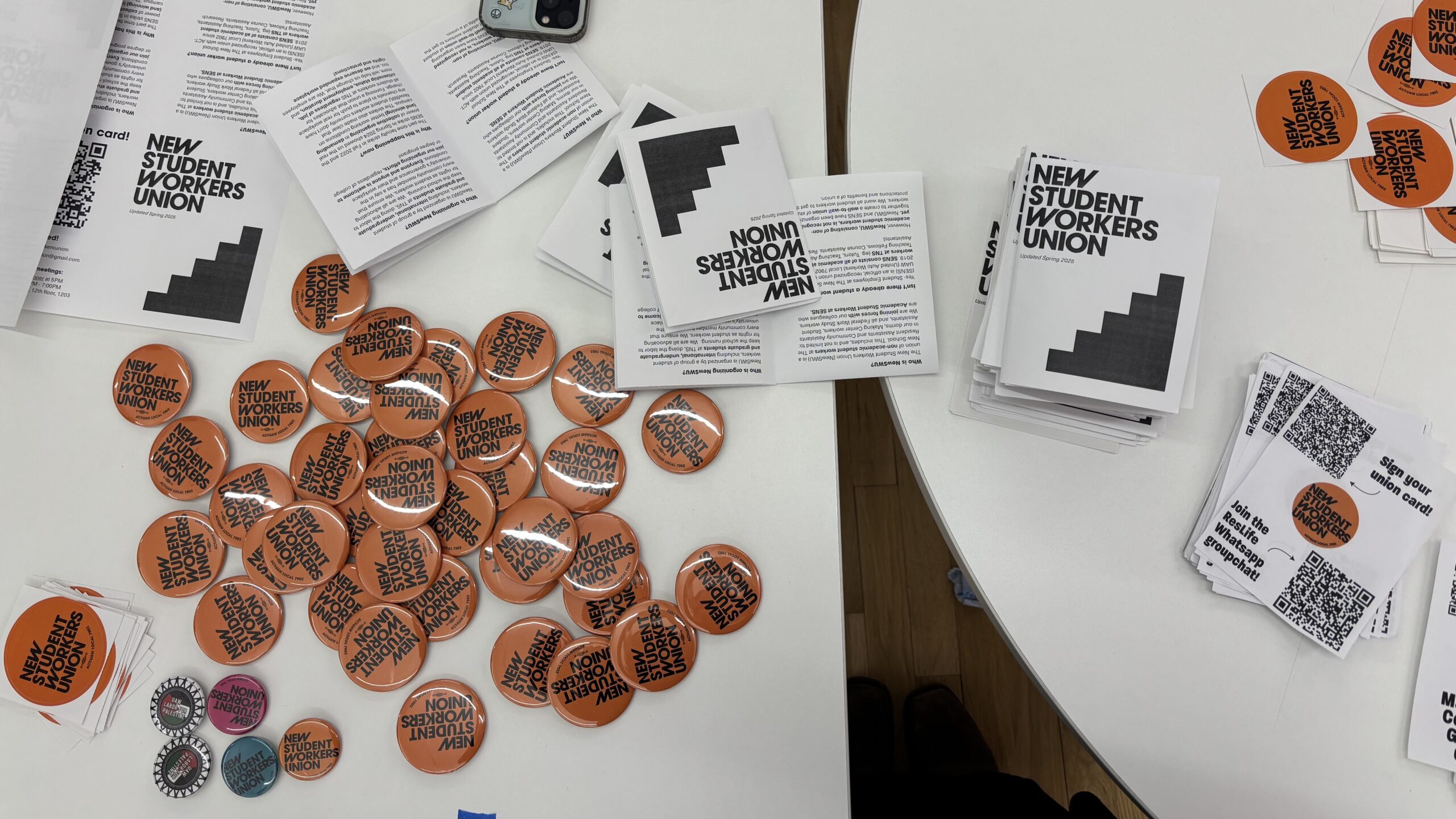Last January, Adel Saeedi traveled from his home in Iran to Lebanon for the sole purpose of conducting a covert money transfer. The need to make an underground transfer made him feel as if he was doing something illegal; in reality, he was only transferring tuition money to his son Mehdi, a New York University student.
Because of the United States sanction on Bank Tejarat, Iran’s third largest bank, Adel was not able to transfer money directly to him from Iran.
Mehdi Saeedi, 23, is an undergrad majoring in hospitality at NYU. He was nearly suspended last January because he paid his tuition three weeks late.
Because of his Iranian passport, Saeedi is often negotiating with authorities, from the NYU administration to Citibank managers.
“I am prepared for [the negotiations],” Saeedi said. “It happens every time.”
Ever since sanctions began, Saedi has had a difficult time maintaining his finances in the U.S.
The United States and some of its allies have increased their sanctions on Iranian banks to thwart Iran’s potential capability to produce nuclear weapons. The sanctions are designed to block the transfer of weapons, components, and technology, to Iran’s nuclear and missile programs, according to the U.S. Department of State.
As a result of the sanctions, Iranian financial institutions are blocked from directly accessing the U.S. financial system.
The sanctions have affected Saeedi’s accounts in Europe as well. He studied abroad before coming to the U.S., and his accounts in Spain, France, and the United Kingdom all closed one after another following the increase of sanctions.
According to a report from the Public Affairs Alliance of Iranian Americans (PAAIA), a nonprofit organization that represents Iranian Americans, the sanctions do have “a certain amount of impact” on preventing Iran from developing nuclear weapons.
However, the impact on Iranians in the U.S. includes sudden bank account closures, restrictions from buying Apple products, the inability to transfer the Iranian currency, the rial, into U.S. dollars; but one of the most impacting issue that result from the sanctions is the devaluation of the Iranian currency. One Iranian rial currently equals $0.000040.
“Ever since a year and a half ago, the rial has taken a sharp dip,” Saeedi said. “No matter what part of the world Iranians are in, the rial is worth a third of what it had been.”
Yet there are no extra funding for most Iranian students studying abroad in the U.S. There were 12 international Iranian students at the New School in the fall of 2012, according to the New School Fact Book.
“I believe the Iranians in the U.S who are most affected by the sanction are the students,” Saeedi said.
The U.S. government earmarks special funding for Iranians in Ivy League schools. Saeedi believes that the measure is meant to prevent them “from returning to Iran, but the rest of the students don’t receive that treatment.”
Saeedi said he spoke with New York University financial advisers repeatedly to seek financial assistance due to the devaluation of the rial, but they said they did not have the funds to assist him.
According to the Iranian U.S. Embassy website, 10 percent of international Iranian undergraduates receive state-allocated funding from their universities, while 45 percent of all international Iranian graduate students receive funds.
PAAIA has been collecting funds to alleviate the financial strain for Iranian students.
Last May, $50,000 was given in community donations and $102,000 was awarded to 51 students. According to Saeedi, PAAIA gave him an emergency fund of $2,000. But when total tuition costs for visiting undergrad students is $32,568, $2,000 just provides a bare minimum of support.
The organization surveyed 1,000 international Iranian students this past January, and found that 62 percent of the students pay for tuition and living expenses from support from Iran. This means that 62 percent of this money was transferred illegally.
When Iranians living in the United States are unable to transfer the rial into U.S. dollars, they have to resort to third parties in Iran’s surrounding countries to do the transfer.
“Sometimes, they have no choice but to rely on a black market operator and that is risky,” said Farideh Koohi-Kamali, a New School Adjunct Professor of Middle Eastern studies. “This route not only takes a long time, but it is not always safe.”
In fact, illegal businesses have emerged specifically for transferring rials.
On the other hand, the closure of Iranian accounts is a natural protocol for banks since HSBC was fined a record $1.9 billion last December for laundering money to drug traffickers, and facilitating prohibited transaction with terrorists and sanctioned governments like Iran.
The New School International Student Services (ISS) works with non-profits such as the Institute of International Education, and the Emergency Student Fund to assist international students whose home countries are experiencing difficult financial situations.
The Emergency Student Fund put out a call in March asking universities to nominate Iranian students with urgent financial needs. The Fund helps them continue their studies so that their academic careers would not interrupted as a result of the financial situation in their home country, according to Monique Ngozi Nri, director of international student services at the New School.
Ngozi Nri’s office also assists international students who wish to apply for economic hardship benefits. This allows them to apply for an employment authorization card, but the student must pay a substantial fee to start the application and the process can take up of 90 days.
“I encourage any international students in this situation to contact international student services or the office of financial aid for assistance,” Ngozi Nri told the Free Press.
Ideally, Mehdi Saeedi would like to set up a hospitality business in Iran one day. But due to the current political and economic turmoil, he said he plans on working in Dubai after graduation.
With reporting by Katharine Hipp








Leave a Reply